Are you preparing for a property inspection and unsure how to communicate the schedule effectively? Crafting a clear and concise letter is essential for keeping everyone informed and on the same page. This not only helps in maintaining a professional tone but also sets the expectations for all parties involved. Let's dive into our comprehensive guide on creating a property inspection schedule letter that ensures a smooth process for you and your tenants!
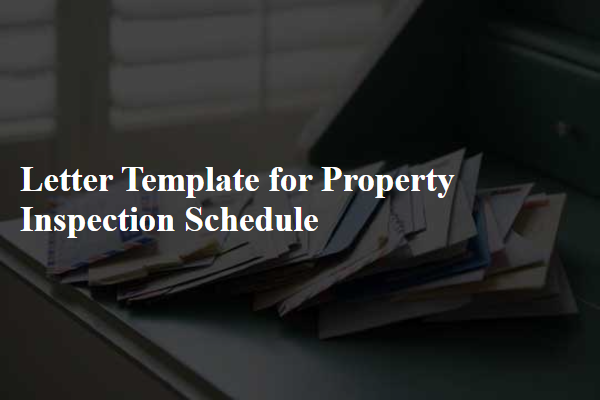
Salutation and Property Details
Property inspections are critical for potential buyers in cities like San Francisco, known for its competitive real estate market. A thorough inspection typically covers key components such as roofing, plumbing systems, and electrical wiring, ensuring compliance with local building codes. During the inspection, a licensed inspector evaluates the property's condition, highlighting any urgent repairs or safety hazards, and providing a detailed report. Local property regulations may require disclosing information about past renovations or pest infestations. Establishing clear communication with the inspector prior to the scheduled date ensures all areas of concern are addressed, maximizing the value of the review process for prospective homeowners.
Purpose and Importance of Inspection
Regular property inspections serve as a vital tool in maintaining the integrity and value of real estate assets, particularly in locations like urban centers where wear and tear can be significant. Inspections can identify potential issues such as plumbing leaks, electrical system failures, or structural damages, which, if left unchecked, could escalate into costly repairs. Scheduled inspections, typically performed quarterly or bi-annually, ensure compliance with local regulations and safety standards, especially in historical properties where regulations may be stringent. Additionally, inspections can enhance tenant satisfaction by addressing maintenance needs promptly, ultimately leading to higher retention rates. Documenting inspection findings creates a comprehensive maintenance history, beneficial for future financial assessments or property transactions.
Scheduled Date and Time
Property inspection schedules require attention to detail for effective communication. Ensure the scheduled date (e.g., October 15, 2023) and time (e.g., 10:00 AM) are clearly indicated. This allows for proper planning and coordination. The location of the property (e.g., 123 Elm Street, Springfield) must be specified to avoid confusion. Additionally, mentioning the type of inspection (e.g., home inspection, pest inspection) provides clarity on the purpose. Contact details (e.g., inspector's phone number) ensure easy communication for any changes or inquiries. Confirming attendance is essential to guarantee all parties are prepared.
Instructions and Preparation
Property inspections require thorough preparation to ensure a smooth process. Inspectors will assess critical areas such as plumbing systems, electrical systems, roofing conditions, and structural integrity within the property, often in different neighborhoods like suburban homes or urban apartments. Schedule confirmations should be sent via email at least 48 hours prior to the inspection date, allowing for any necessary adjustments. Homeowners should document any existing damages or concerns, creating a checklist of items for review. This may include items such as mold presence, pest infestations, or HVAC performance anomalies. Ensure access to restricted areas like attics and basements is granted, as inspectors need to evaluate all aspects. Safety precautions should be followed, with personal protective gear utilized in high-risk areas. Finally, preparation for the inspector's arrival should include tidying up the property and ensuring utilities are operational for a comprehensive evaluation.
Contact Information and Request for Confirmation
A thorough property inspection schedule involves meticulous planning to ensure all aspects of the property are evaluated. The scheduled date for the inspection, such as October 10, 2023, requires confirmation from all parties involved, including the property owner and inspection team. The property, located at 123 Main Street, should be prepared for a comprehensive review of its structural integrity, plumbing systems, electrical installations, and overall safety compliance. Having contact information readily available facilitates swift communication, allowing for immediate updates or changes to the schedule. Essential documents, including previous inspection reports or maintenance records, should also be organized and accessible for reference during the inspection process.

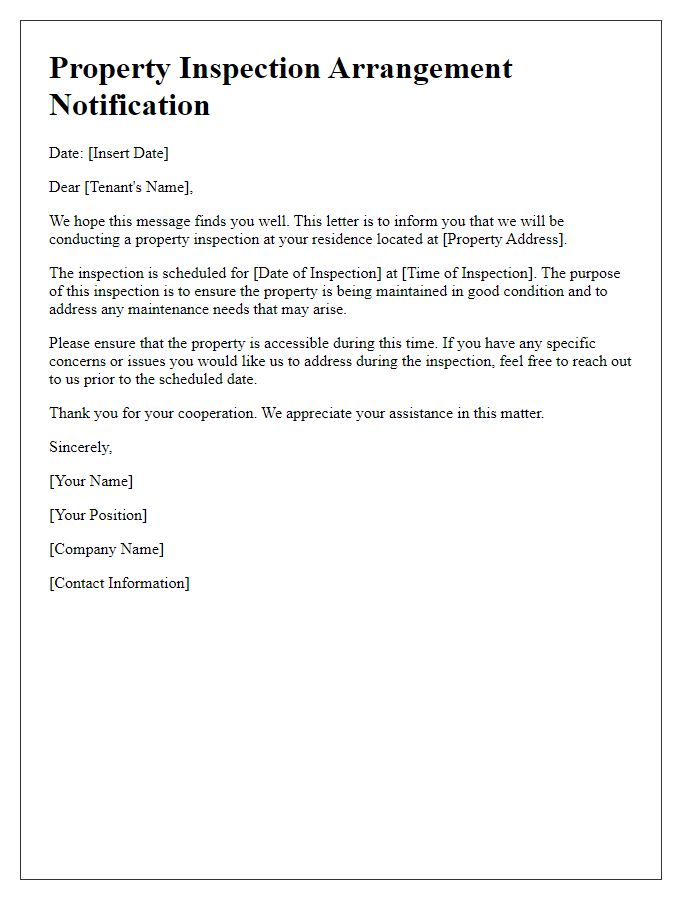
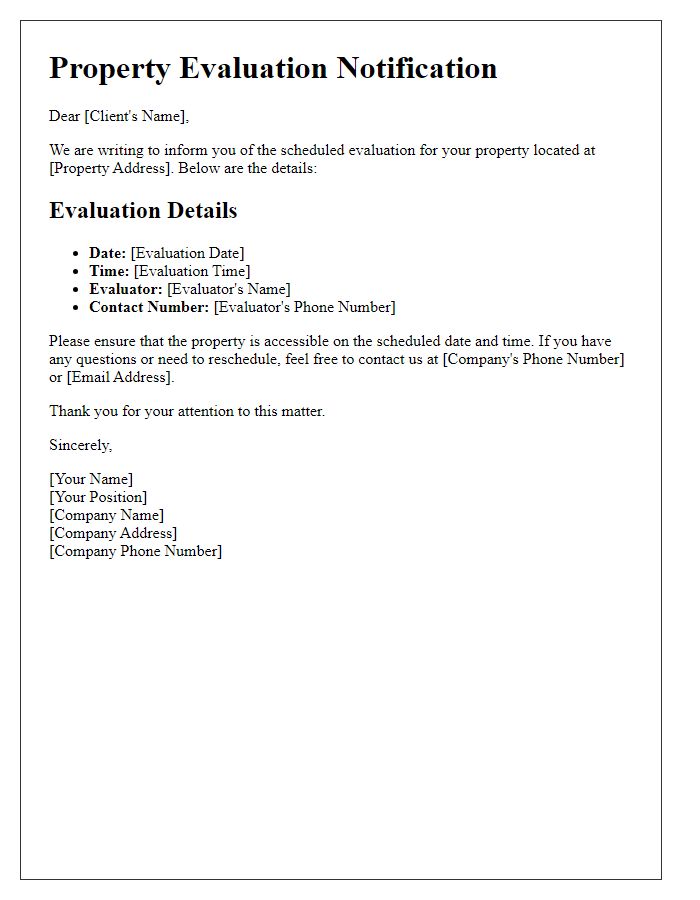
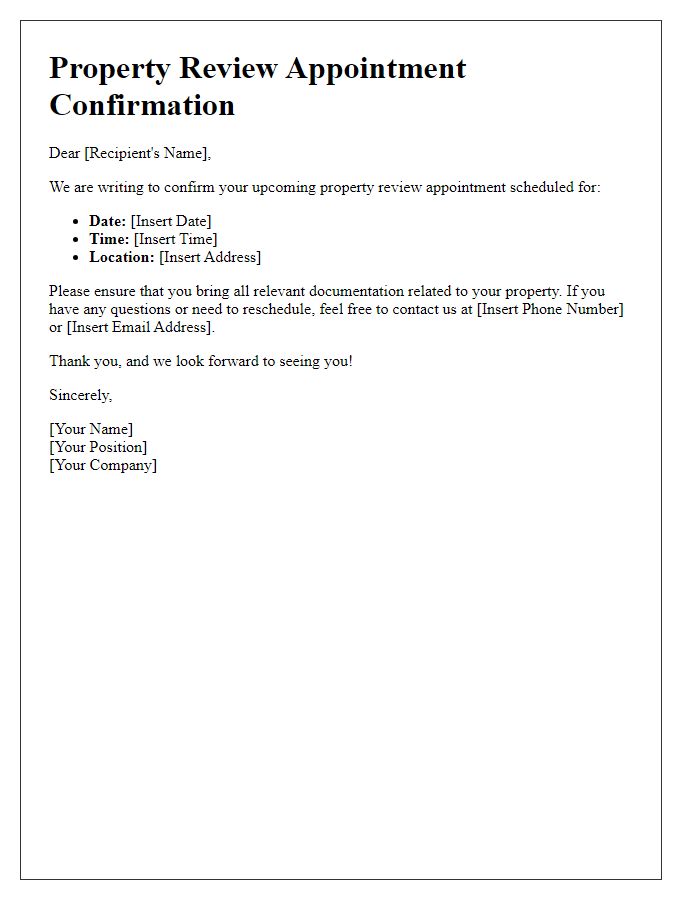
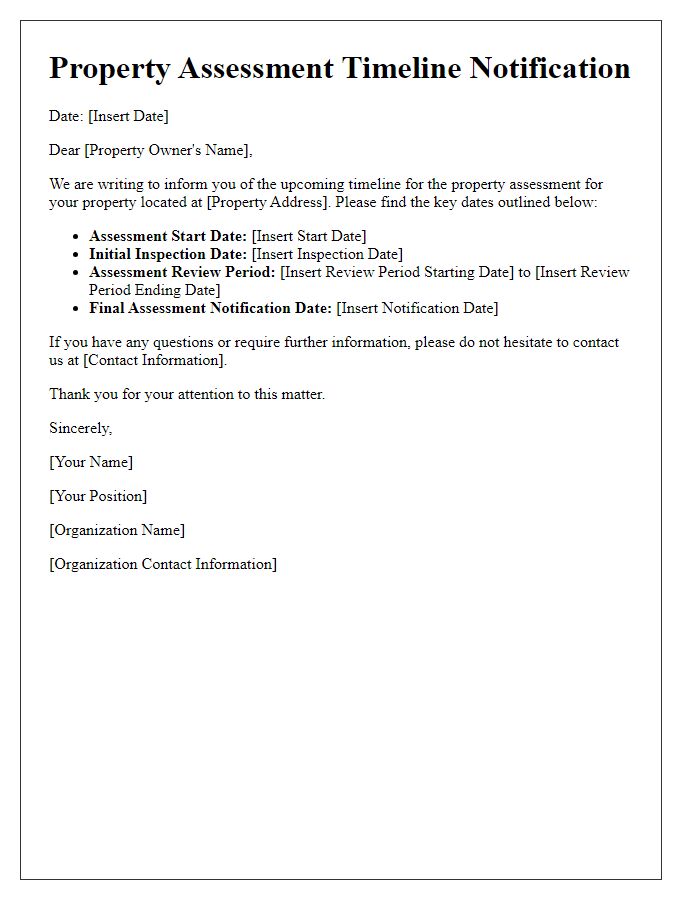
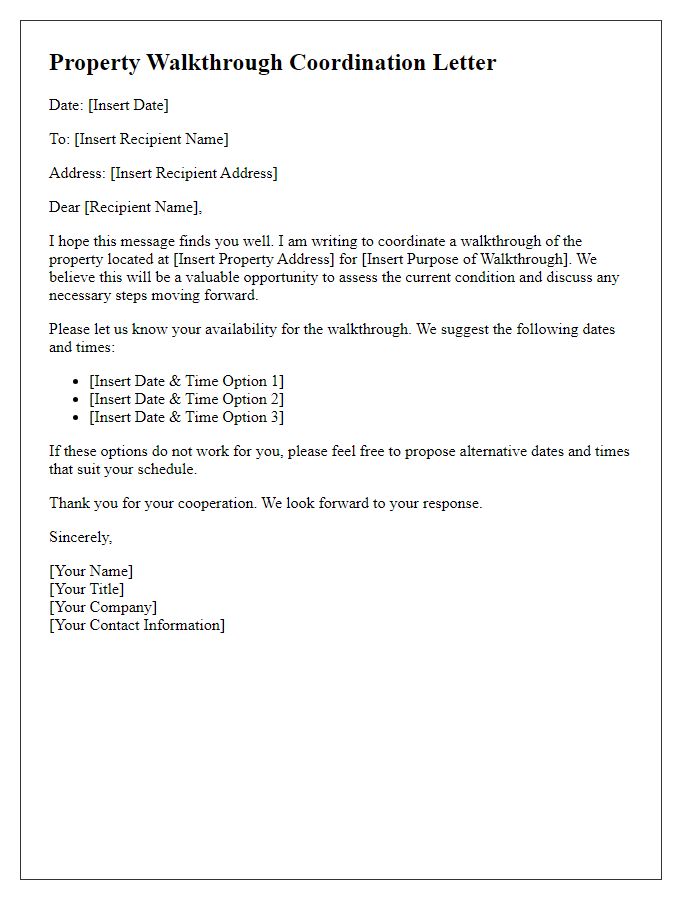
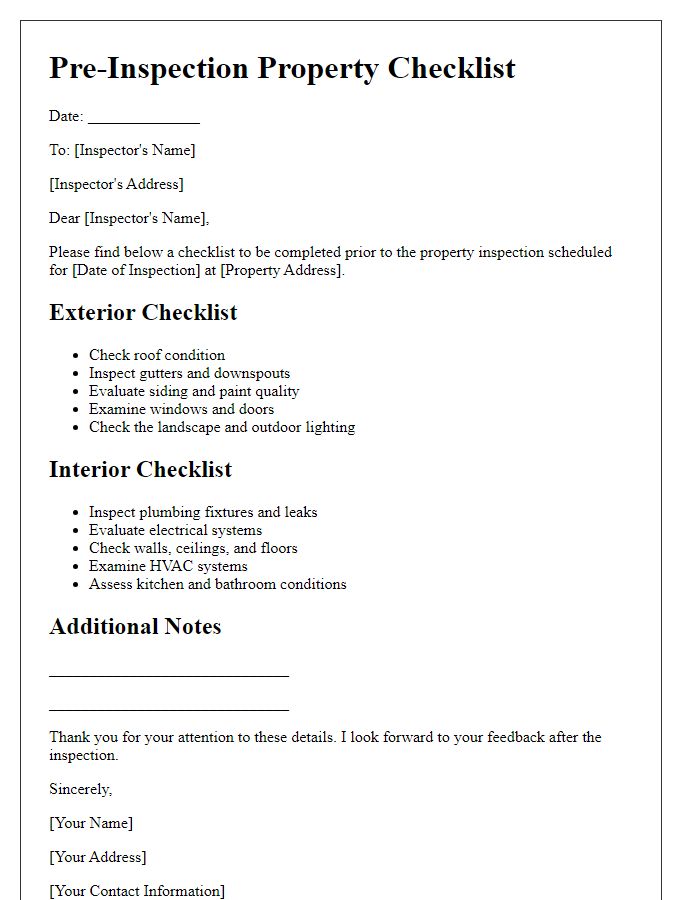
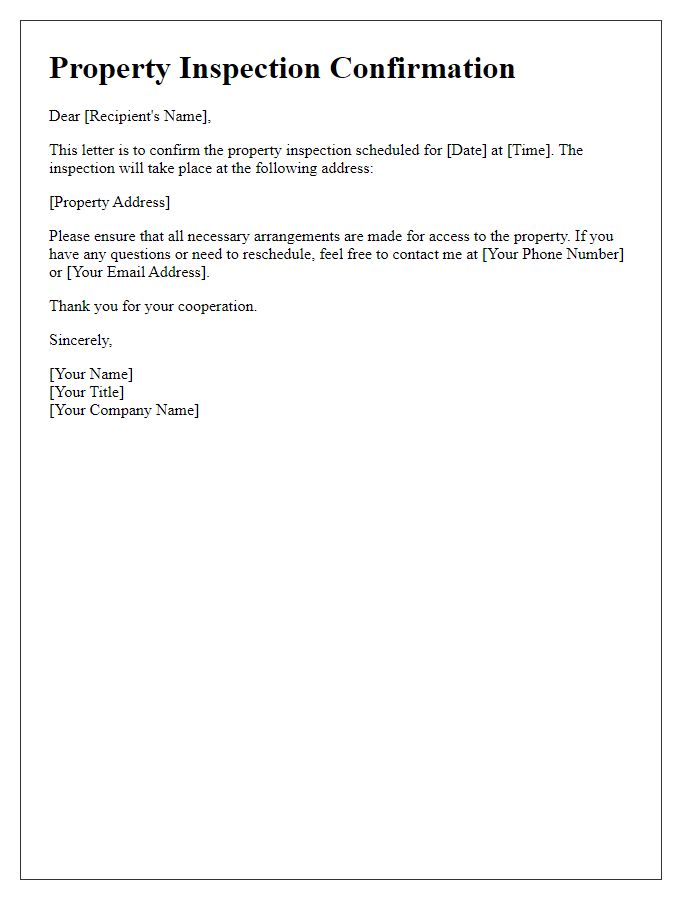
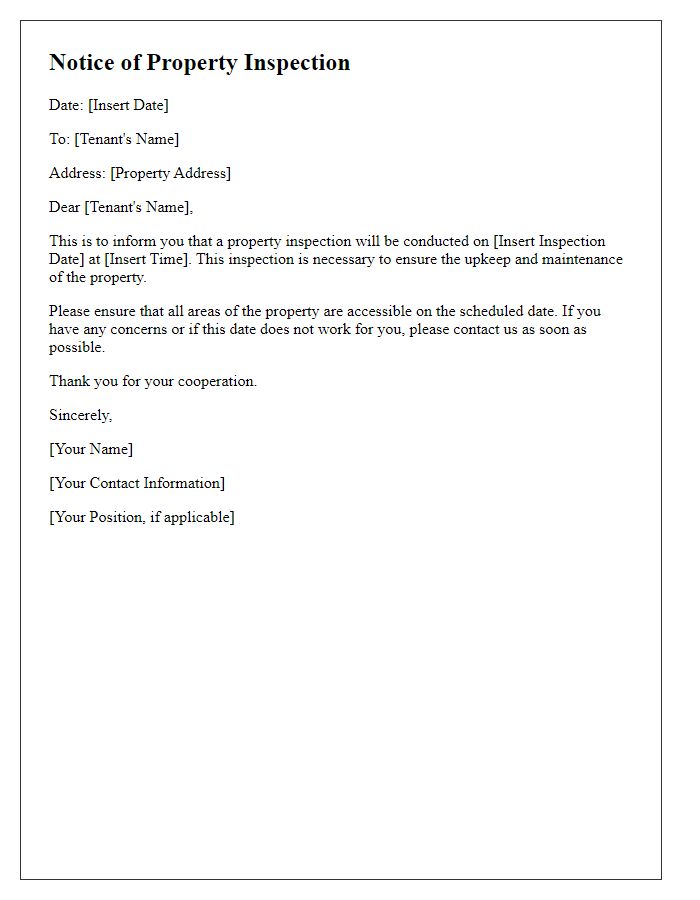
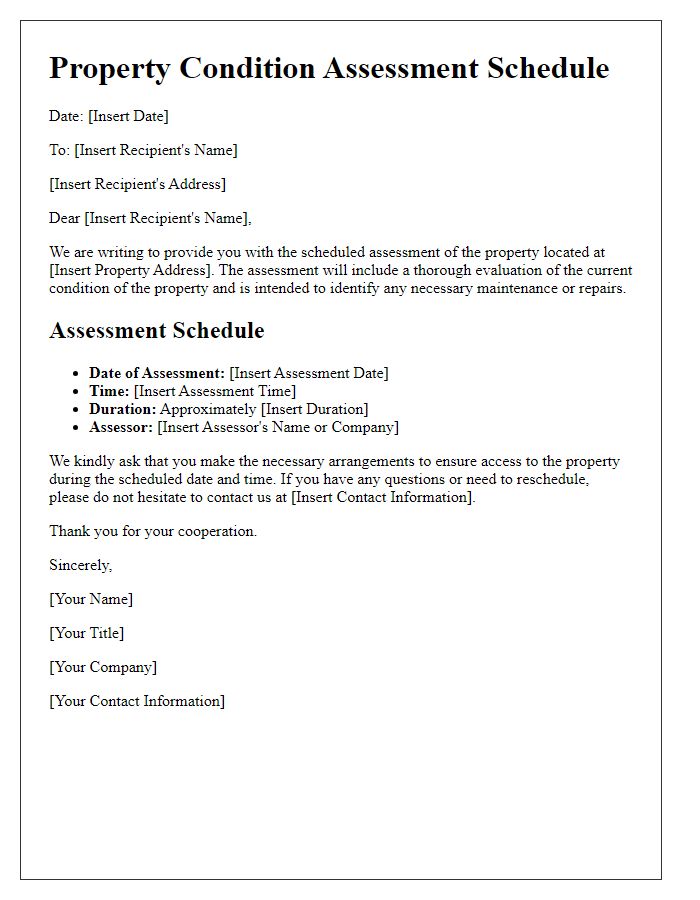
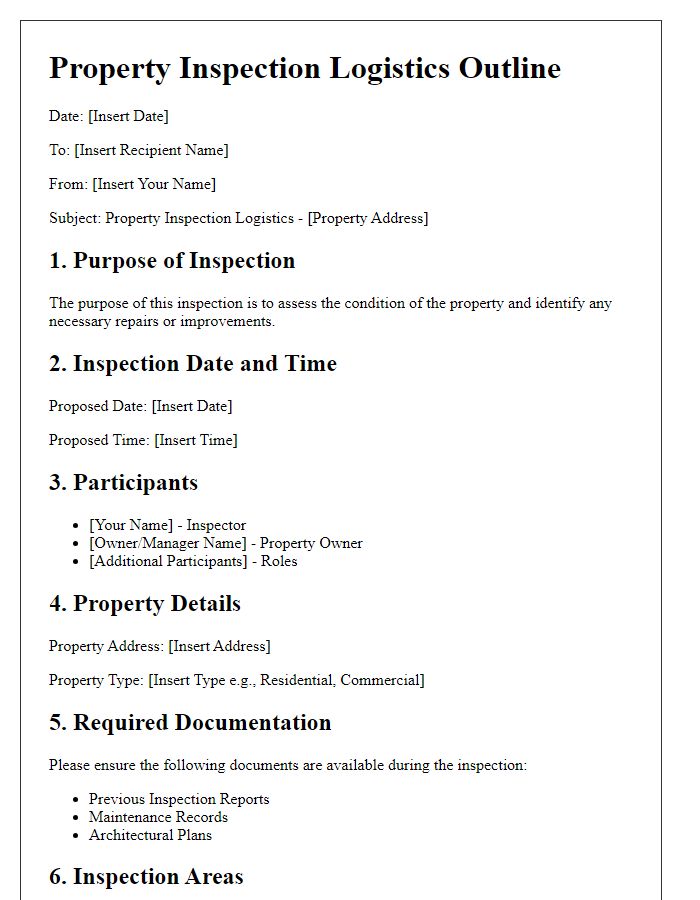


Comments